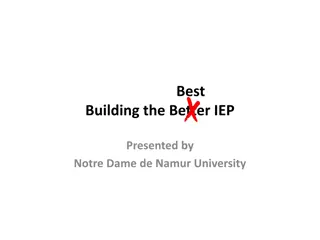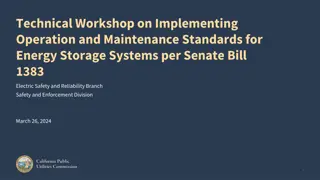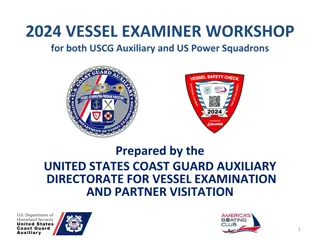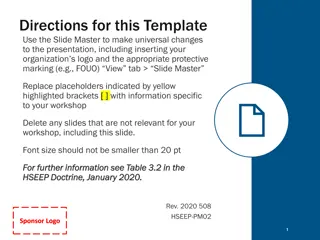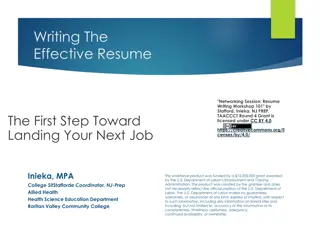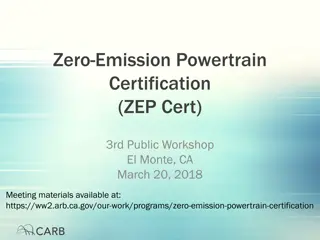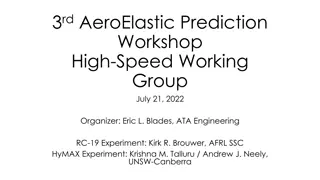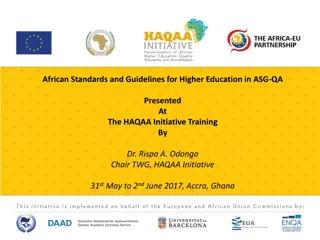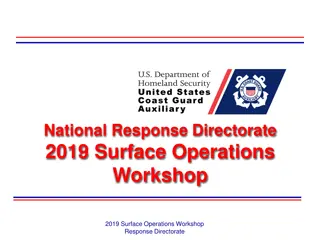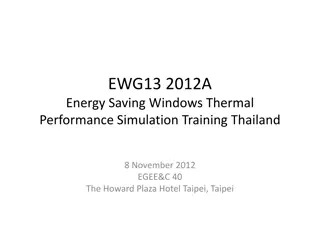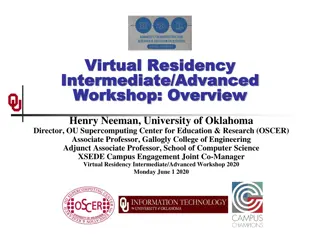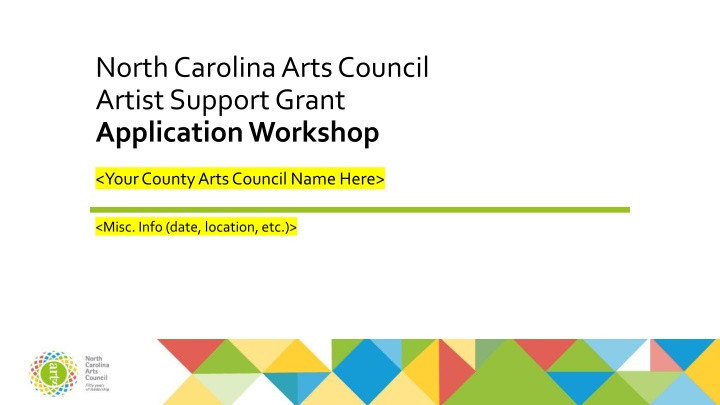
North Carolina Artist Support Grant Eligibility & Application Details
Learn about the North Carolina Arts Council Artist Support Grant, eligibility criteria, application process, and evaluation criteria for visual, performing, literary, and interdisciplinary artists in North Carolina. Find out how to apply and improve your chances of receiving direct support for your artistic development.
Download Presentation

Please find below an Image/Link to download the presentation.
The content on the website is provided AS IS for your information and personal use only. It may not be sold, licensed, or shared on other websites without obtaining consent from the author. If you encounter any issues during the download, it is possible that the publisher has removed the file from their server.
You are allowed to download the files provided on this website for personal or commercial use, subject to the condition that they are used lawfully. All files are the property of their respective owners.
The content on the website is provided AS IS for your information and personal use only. It may not be sold, licensed, or shared on other websites without obtaining consent from the author.
E N D
Presentation Transcript
North Carolina Arts Council Artist Support Grant Application Workshop <Your County Arts Council Name Here> <Misc. Info (date, location, etc.)>
North Carolina Arts Council Artist Support Grant The Artist Support Grant provides direct support to individual artists for professional and artistic development, either to enhance their skills and abilities to create work, or to improve their business operations and capacity to bring the work to audiences. The fund was created as part of North Carolina Arts Council s reprioritization of grants to provide stabilization for artists and organizations since the onset of COVID-19.
Eligibility for Application The Artist Support Grant is intended to support a broad range of talented visual, performing, literary, and interdisciplinary artists. Eligible candidates may be either emerging or established artists. Applicants should demonstrate a commitment to spending a significant portion of their time on their work as artists.
Eligibility for Application Individuals and Artist Collectives - Both individual artists and small, unincorporated groups of collaborating artists are eligible to apply. Residency Artists should have lived in the region where they are applying continuously for at least one year prior to the consortium s application deadline. An applicant must be at least 18 years old and either a U.S. citizen or a permanent resident alien. Proof of residence and status may be required by the consortium. Artists who live in more than one region should apply only where they spend the majority of the year. All members of a collaborating team must be North Carolina residents, live in the region where they are applying, and meet the other eligibility requirements.R sum s documenting residence from all team members should be included with the application.
Eligibility for Application Multiple Awards Artists who are sole proprietors of organizations that have already received funding for FY2022-2023 from the N.C. Arts Council are ineligible to apply. Awardees must also wait at least two years after the award year before becoming eligible to reapply. Conflict-of-Interest - Current board and staff members of the participating partner organizations and their family members are not eligible to apply for the award.
Evaluation Criteria Artistic Merit Demonstrated talent in an art form and overall excellence of the artist swork Clear commitment to a career as a practicing professional artist
Evaluation Criteria Project Merit Benefit of the proposed project to the artist s professional growth Feasibility of the proposed project
What the Grant will Fund Completion/Presentation of a New Work Cost of resources necessary to complete or present a significant new work e.g., purchasing art supplies, equipment, or space rental. Career Promotion Projects aimed at advertising artists work and/or demonstrating their skill level e.g., websites, portfolios, audio-visual documentation, and online presentation.
What the Grant will Fund Training Costs to attend a class or workshop (in-person or virtual) aimed at either enhancing the artists skill level or professional development e.g., a master class or workshop taught by acknowledged authorities in their medium. Travel Costs of transportation, lodging, and food for training, professional conferences, or research as allowed or possible with adhering to social distancing guidelines. Up to 50% of grant amount may be used towards artist fees!
What the Grant will Not Fund Scholarships for undergraduate- or graduate-level education Projects that support or oppose a particular candidate for public office Projects that are exclusive to members of a particular religious faith group Non-profit initiatives Projects that do not have a direct effect on the applicant s growth as an artist e.g. the promotion of other artists work
Narrative Your Project Narrative should explain your proposed project and how it will have an impact on your career as an artist. Include your artist statement and project description: Describe your project and the proposed use of funds. Explain what this project will enable you to do that you are unable to do now. Summarize how this project will advance your career or development as an artist.
Narrative Your proposal needs to be: Feasible Don t propose a project that seems beyond your capacity either in terms of cost, access, or other factors. A logical step for you It should make sense why the workshop tuition, computer, brochure, or new studio you want would be relevant and helpful to you at this point in your career. The more specific you can be the better.
Narrative General Rules of Thumb: Use simple, declarative sentences, active voice and get to the point. Observe the space or page limits. Say what you need to say as efficiently as possible. Who, what, when, where, why, and how. If you find, after you ve answered the application queries, that you haven t addressed one or more of the questions, you might want to revisit your responses.
Narrative General Rules of Thumb: The narrative is not an artist statement. Keep your answers focused on the practical needs and outcomes of your project. Ask someone unconnected to the arts to read your application. Their perspective can be valuable in identifying aspects that are unclear or unpersuasive.
Budget Provide detail. More detail is better. You can see the difference in the detailed budget on the right: Example 1 Travel: $600 Example 2 Mileage (200 mi. @ .535): Lodging (4 nights @ $85): Meals (5 days @ $35): Total: $107 340 175 $622
Budget Provide supporting documentation Getting an estimate from the provider(s) to support the numbers will result in a stronger application. For most equipment, airfares, and materials costs, prices can be found online. For professional services, you may need to request an estimate. Always provide documentation for class, workshop, or conference registration costs. If studying with a specific teacher is part of your proposal, say why and provide documentation of the teacher s credibility.
Budget You are not required to spend your own money! If applicable, show other sources of income. If you are pursuing or have secured donations from others, especially for more ambitious projects, include that information, as well. Just leave enough room on the expected income side of your budget to make it clear that you do need the grant.
Rsums or Bios As a rule, they should be: Artist r sum s They should focus on your activities as an artist, including exhibitions, performances, readings, screenings, commissions, collections that have acquired your work, publishing history, residencies, articles and reviews of your work, workshops taught or taken, lectures, panels, education, employment, awards, etc. Abbreviated A suggested length is two-to-four pages.
Rsums or Bios If you have limited experience as an artist, foreground your existing artistic achievements in your resume and condense your other work and experience into broad background information. Use this situation to make the case that the grant is especially important towards taking a meaningful step forward in your artistic career.
Work Samples Strong, high-quality work samples are essential for a successful application. The first stage in every process is an artistic evaluation, so pay attention to what you choose to submit.
Work Samples Selection Be selective about what you include. Choose samples that you consider to be: Strong and recent representations of the quality of your work. Cohesive and relevant to the project you have proposed.
Work Samples Work-sample descriptions and labeling An inventory list should accompany the work samples provided. The basic information is specific to each discipline. This will be explained in further detail on the next slides.
Work Samples Dance and Performing Arts Documentation of up to three recorded performances. Videos uploaded may not exceed a total time of ten minutes. Description: include date and location of performance, title of piece, names and roles of key people, including directors, choreographers, lead performers/actors, etc. A short summary may also be included.
Work Samples Music Documentation of up to three recorded performances. Audio or video uploaded may not exceed a total time of ten minutes. Description: include date and location of performance, title of piece, names and roles of key people, including directors, choreographers, lead performers/actors, etc. A short summary may also be included. Composers and songwriters should also submit scores, lyrics, and/or lead sheets, as appropriate.
Work Samples Writing Fiction, creative nonfiction, and playwrights may submit no more than 12 pages each of one to two manuscripts. Poets may submit five to seven poems. Playwrights may also submit documentation of a recorded performance or staged reading of their plays (videos, clip not to exceed five minutes.)
Work Samples Visual Art and Craft Up to 15 images of your work. Images must be high quality not blurry or pixelated. Description: title, date of completion, medium, and dimensions.
Work Samples Film Documentation of one or more completed films. Video clips not to exceed five minutes. Description: include date and location of performance, title of piece, names and roles of key people, including directors, choreographers, lead performers/actors, etc. A short summary may also be included.
Work Samples For video and audio work samples: Note that due to file sizes, YouTube and Vimeo links are preferred for video. Please indicate if the work sample is professionally mastered. Do not upload MP4 files directly to the application.
Work Samples Samples must be of your work only! Work must be completed within the past three years. (Exceptions may apply, ask your arts council for details.)
Letters of Recommendation Letters of recommendation are sometimes required, sometimes optional, but they should always be the least important part of your proposal. Have qualified references who can speak specifically and enthusiastically about your abilities as an artist. Consider the following as you choose your references: First-hand knowledge of your work as an artist Professional credentials (this is not a personal recommendation) How recent is the reference s encounter with your work?
Application Checklist Application Profile Narrative Artist Statement Attach an artist statement that describes your work and the key ideas and goals that drive you to create. (one typed page) Artist R sum Attach an artist r sum that includes education, employment, public presentations of your work, publications, commissions, honors, grant/fellowship awards, and relevant experience. (four pages maximum)
Application Checklist Budget Support Provide support information for your budget, i.e. cost of materials, price quote on services, etc. Support Materials You may submit reviews, programs, catalogs, and other support materials relevant to the project. Work Samples and Inventory List
If you receive a grant You will enter into a contractual agreement with <arts council name> Any promotional and marketing materials for the proposed project must demonstrate use of N.C. Arts Council logo and credit line. Funds must be spent by June 30, 2023. Projects must be completed before December 31, 2023.
Questions? If you need help with your application, or have specific questions, contact: <Contact Name> <Contact Information >


